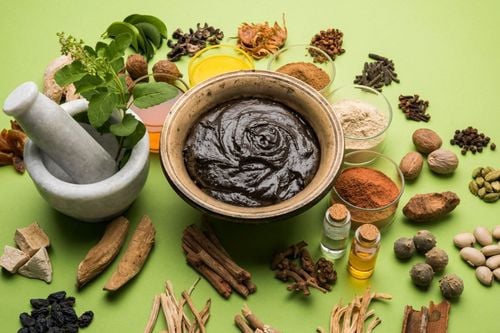This is an automatically translated article.
Stress and anxiety are very common in most people. In fact, 70% of adults in the United States say they feel stressed or anxious on a daily basis. Here are 16 simple ways to reduce stress extremely effectively.
1. Exercise helps reduce stress and anxiety
Exercise is one of the most important things you can do to combat stress. In fact, putting physical stress on your body through exercise can reduce mental stress. According to the survey results, people who exercise regularly are less likely to experience anxiety than those who do not, which is caused by:
Stress hormones: Exercise is believed to have the ability to reduce stress hormones – such as cortisol – in the long run. It also helps release endorphins – hormones that improve our mood and act as natural pain relievers. Sleep: Exercise can also improve sleep quality, reducing the negative effects of stress and anxiety. Confidence: When you exercise regularly it promotes feelings of confidence and makes you feel competent, which in turn promotes mental well-being. Try to find an exercise routine or physical activity that you enjoy, such as walking, dancing, climbing or yoga....to help reduce stress effectively.

2. Consider using functional foods
Some supplements have the ability to reduce stress and anxiety, if you are in this condition, can be solved by supplementing:
Lemon balm: Lemon balm is a leaf of the mint family that has been studied. anti-anxiety studies. Omega-3 fatty acids: One study found that medical students who took omega-3 supplements experienced a 20% reduction in anxiety symptoms. Ashwagandha: Ashwagandha is an herb used in Ayurvedic medicine to treat stress and anxiety. Some studies show that it is effective in treatment. Green Tea: Green tea is rich in polyphenol antioxidants that provide many health benefits. It can reduce stress and anxiety by increasing serotonin levels. Valerian: Valerian root is a popular sleep aid due to its sedative effects. It contains valerenic acid, which alters the gamma-aminobutyric acid (GABA) receptor to reduce anxiety. Kava kava: Kava kava is a variety of the pepper family. Long used as a sedative in the South Pacific, it is increasingly being used in Europe and the US to treat mild stress and anxiety.
Trắc nghiệm: Bận rộn có ảnh hưởng đến sức khỏe của bạn không?
Cuộc sống hiện đại khiến chúng ta vì quá bận rộn mà quên chăm sóc sức khỏe cho chính mình. Ai cũng biết rằng lịch trình làm việc cả ngày có thể khiến bạn kiệt sức, nhưng cụ thể bận rộn ảnh hưởng thế nào tới sức khỏe? Hãy cùng làm thử bài trắc nghiệm dưới đây.
3. Burning scented candles helps relieve stress
Using essential oils or lighting a scented candle can help relieve stress and anxiety. Some scents are particularly soothing such as:
Lavender Rose Vetiver Bergamot Roman Chamomile Neroli Agarwood Sandalwood Ylang ylang Orange or Orange Blossom Geranium Using scents to treat mood is known as healing scent law. Some studies show that aromatherapy can reduce anxiety and improve sleep.

4. Reduce the amount of caffeine consumed
Caffeine is a stimulant found in coffee, tea, chocolate and energy drinks. Using high doses can increase anxiety.
People often have different tolerance thresholds for different amounts of caffeine. If you notice that caffeine makes you jittery or anxious, consider cutting back.
Although many studies show that coffee can have health benefits, it is not for everyone. In general, consuming less than five cups of coffee per day is considered a moderate amount.
5. Journaling helps relieve stress
One way to relieve stress is to write everything down, write down what you are grateful for. Gratitude can help relieve stress and anxiety by focusing your thoughts on the positive things in life.
6. Chew gum
To relieve stress easily and quickly, you can try chewing a stick of gum. One study found that people who chewed gum felt healthier and reduced stress.
Some theories suggest that chewing gum causes brain waves similar to when the body is relaxed. Another way to explain it is that chewing gum promotes blood flow to your brain.
7. Spend time with friends and family
Support from friends and family can help you get through a stressful time. Hanging out with friends gives you a sense of belonging and self-worth, which can help during difficult times.
One study found that, for women in particular, spending time with friends and children helps release oxytocin, a natural stress reliever. Another study found that men and women with the least social connections were more likely to suffer from depression and anxiety

8. Laugh to relieve stress
It is not uncommon to feel anxious and stressed when the body is smiling. What's more, laughter is believed to have many emotional effects and can help reduce stress. In the long run, laughter can also help improve your immune system and mood.
A study among people with cancer found that those in the laughter intervention group experienced a greater reduction in stress than those who were simply distracted. When stressed, try watching a funny TV show or hanging out with friends who make you laugh.
9. Learn to say no
Not all stressors are within your control, but some are. Taking control of the parts of your life that you have control over is one way to reduce stressors. One way to do this might be to say “no” more often.
This is especially true if you find yourself taking on more than you can handle, as taking on too many responsibilities can make you feel overwhelmed. Be selective about what you take on - turning down responsibilities that can overwhelm you is one way to reduce your stress levels.
10. Avoid procrastination
Another way to manage your stress is to always put your priorities first and stop procrastinating. Procrastination can cause you to act in a hurry, leaving you struggling to catch up. This can be stressful, negatively affecting your health and the quality of your sleep.
Get in the habit of making to-do lists sorted by priority. Give realistic deadlines for the work and specific methods of completion.
11. Yoga to relieve stress
Yoga has become a popular stress reliever in all age groups. While there are many different styles of yoga, most share the same goal - engaging your body and mind. Yoga primarily does this by increasing awareness of the body and the breath.
Several studies have looked at the effects of yoga on mental health. Overall, research has found that yoga can boost mood and may even be as effective as antidepressants in treating depression and anxiety.
However, many of these studies are limited, and questions remain about how yoga works to reduce stress.
In general, the benefits of yoga for stress and anxiety seem to be related to its effects on the human nervous system. It may help lower cortisol levels, blood pressure and heart rate, and increase gamma-aminobutyric acid (GABA), a neurotransmitter that is lowered in mood disorders.

12. Practice mindfulness
Practicing mindfulness skills can help combat the anxiety-inducing effects of negative thinking. There are several methods to increase mindfulness, including mindfulness-based cognitive therapy, mindfulness-based stress reduction, yoga, and meditation.
A recent study in college students suggested that mindfulness can help increase self-esteem, thereby reducing symptoms of anxiety and depression
13. Use intimate gestures
Hugs, kisses, and sex can all help relieve stress. Positive physical contact can help lower oxytocin and cortisol release. This can help lower blood pressure and heart rate, both of which are physical symptoms of stress.
Interestingly, humans aren't the only animals that cuddle to relieve stress. Chimpanzees also cuddle members of the herd when stressed
14. Listen to music to relieve stress
Listening to music can have a relaxing effect on the body. Slow-paced instrumental music can induce a relaxation response by helping to lower blood pressure and heart rate as well as stress hormones.
Some classical, Celtic, Native American and Indian music can be especially soothing, but just listening to whatever music you like will work. Natural white sounds can also be very calming. This is why they are often associated with relaxing music and meditation.
15. Take a deep breath
Mental stress activates your sympathetic nervous system, signaling your body to go into “fight” or “run” mode. During this response, stress hormones are released and you experience physical symptoms such as a faster heart rate, faster breathing, and congested blood vessels.
Deep breathing exercises can help activate your parasympathetic nervous system, which controls the relaxation response. There are several types of deep breathing exercises, including diaphragmatic breathing, abdominal breathing, and rhythmic breathing. The goal of deep breathing is to focus your awareness on your breath, making it slower and deeper. When you inhale deeply through your nose, your lungs fully expand and your abdomen rises. This helps slow your heart rate, allowing you to feel more peaceful.
16. Play with pets
Having a pet can help reduce stress and improve your mood. Interacting with pets can help release oxytocin, a brain chemical that promotes positive mood.
Having a pet can also help reduce stress by giving you a sense of purpose, keeping you active and a sense of companionship - all qualities that help reduce anxiety.
Please dial HOTLINE for more information or register for an appointment HERE. Download MyVinmec app to make appointments faster and to manage your bookings easily.
Reference source: healthline.com












